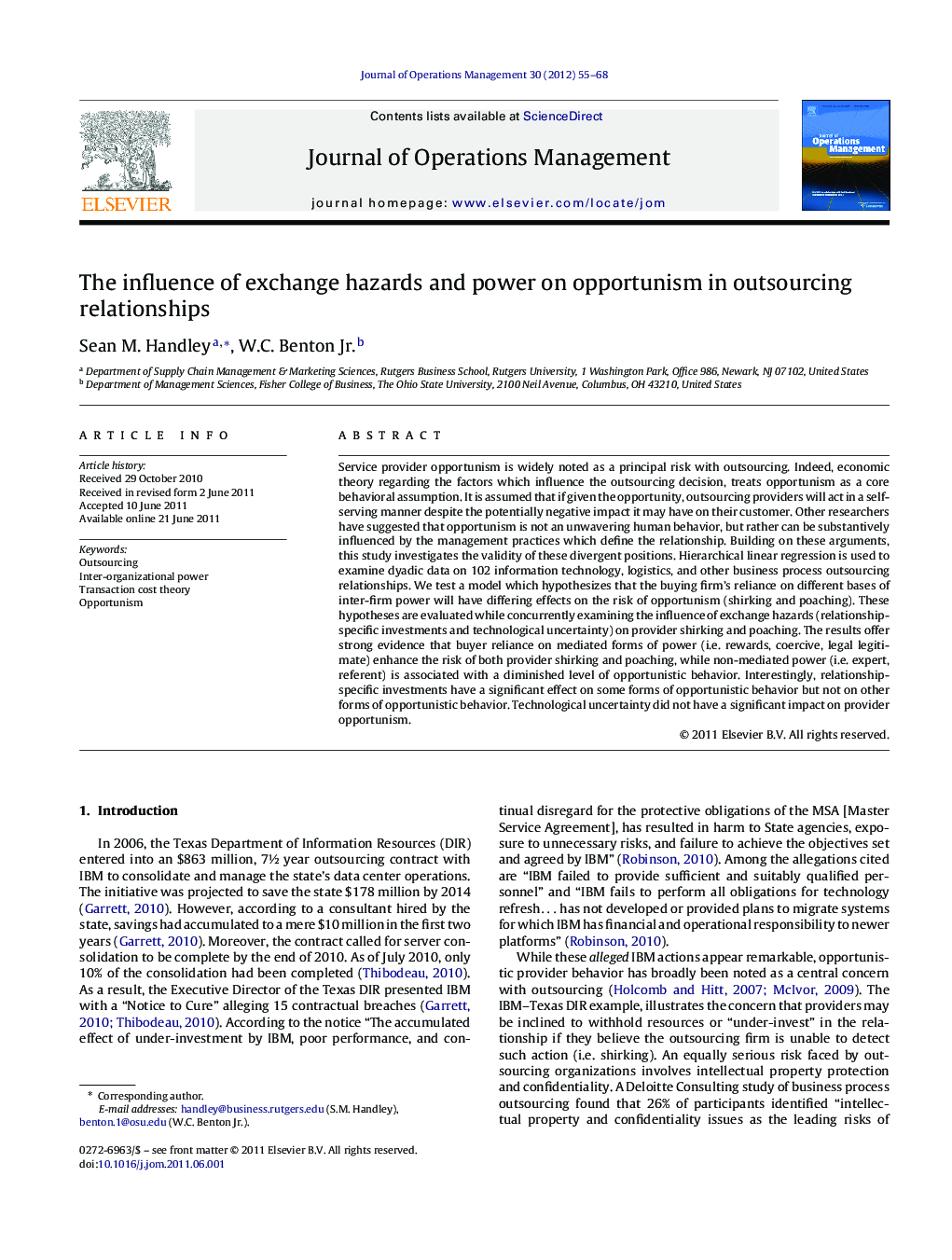| Article ID | Journal | Published Year | Pages | File Type |
|---|---|---|---|---|
| 1031891 | Journal of Operations Management | 2012 | 14 Pages |
Service provider opportunism is widely noted as a principal risk with outsourcing. Indeed, economic theory regarding the factors which influence the outsourcing decision, treats opportunism as a core behavioral assumption. It is assumed that if given the opportunity, outsourcing providers will act in a self-serving manner despite the potentially negative impact it may have on their customer. Other researchers have suggested that opportunism is not an unwavering human behavior, but rather can be substantively influenced by the management practices which define the relationship. Building on these arguments, this study investigates the validity of these divergent positions. Hierarchical linear regression is used to examine dyadic data on 102 information technology, logistics, and other business process outsourcing relationships. We test a model which hypothesizes that the buying firm's reliance on different bases of inter-firm power will have differing effects on the risk of opportunism (shirking and poaching). These hypotheses are evaluated while concurrently examining the influence of exchange hazards (relationship-specific investments and technological uncertainty) on provider shirking and poaching. The results offer strong evidence that buyer reliance on mediated forms of power (i.e. rewards, coercive, legal legitimate) enhance the risk of both provider shirking and poaching, while non-mediated power (i.e. expert, referent) is associated with a diminished level of opportunistic behavior. Interestingly, relationship-specific investments have a significant effect on some forms of opportunistic behavior but not on other forms of opportunistic behavior. Technological uncertainty did not have a significant impact on provider opportunism.
